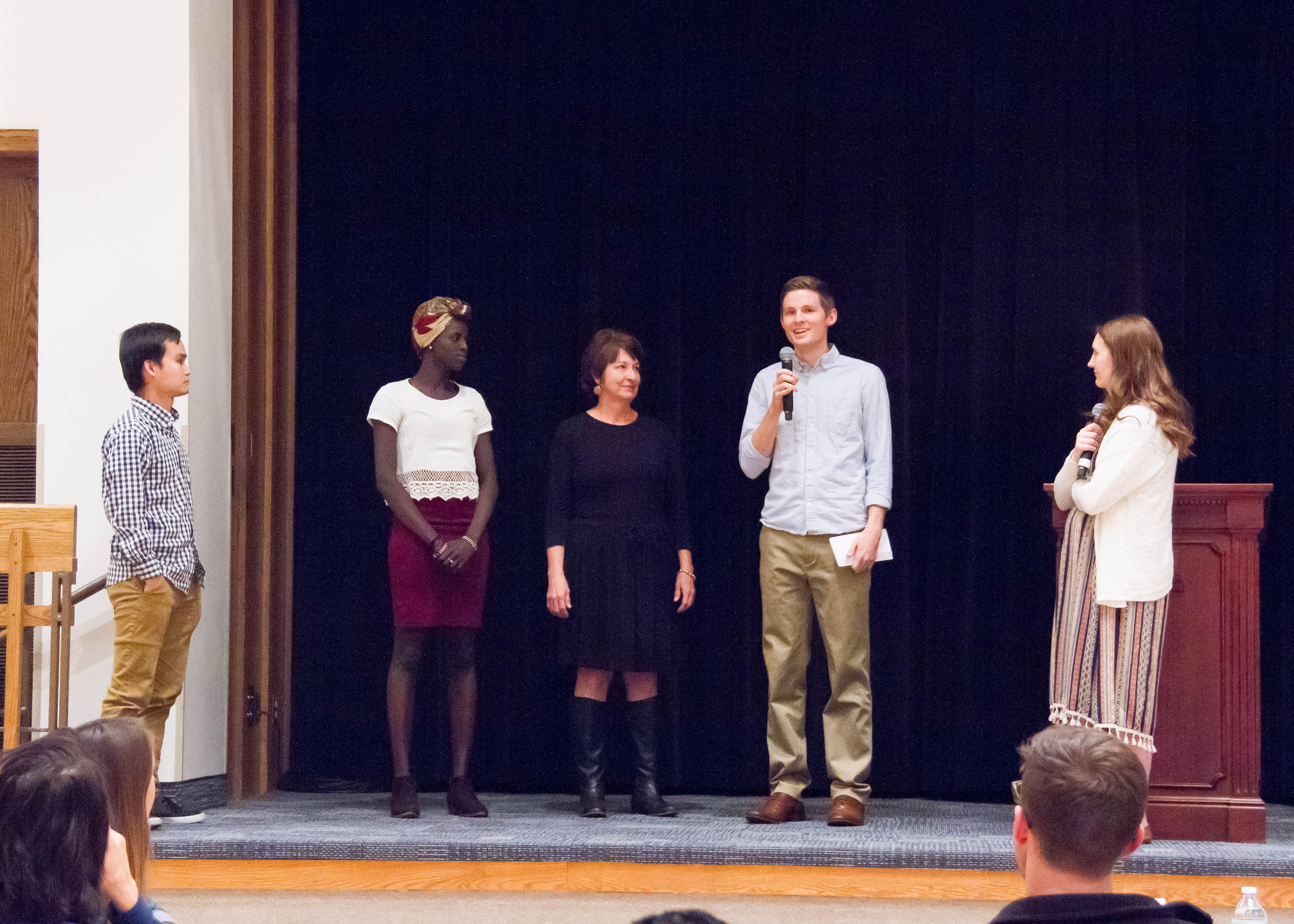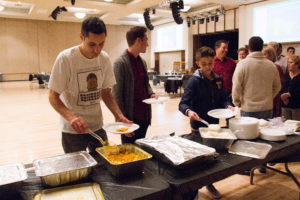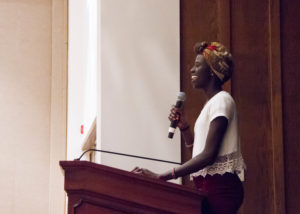
The Utah Department of Health reports that around 1,200 refugees resettle to Utah each year. Globally, BYU social work professor Stacey Shaw said there are over 68 million refugees who have been forcibly displaced from their homes. Though the refugees resettled to Utah are only a small fraction of the whole, BYU students are rallying to help address the challenges refugees face through the Refugee Empowerment Club.
“So many people want to get involved with helping refugees, they just don’t know how,” said Matt Robinson, one of the Refugee Empowerment Club’s presidents. “As a Club, we are trying to fill that need of informing people and searching for opportunities to help.”
The Refugee Empowerment Club’s mission is “to help inform BYU students about refugee issues, empower students and refugees, and make a change in our community.”
To that end, the Club recently held a fundraiser dinner on Nov. 16 to raise money and awareness for One Refugee, a nonprofit based in Salt Lake City that “help(s) refugees thrive in their new home through career counseling, mentorship, financial aid and more.”
All the proceeds from ticket sales, cash donations and textbook donations from the dinner went to buying computers for new One Refugee students, said Amy Wylie, One Refugee’s education executive director.

Club members, Wylie, two BYU student refugees and Shaw spoke after dinner was provided by Sikkim Momo, a Salt Lake restaurant started by two refugee women from Nepal. The BYU student refugees spoke about how their refugee experiences affect their education today.
Adheiu Arok, a BYU student and refugee from South Sudan, said she was denied education because of gender inequality when she was young. Later, she was denied education because her family could not afford it. When she finally came to the United States to start her education, she had to work hard to catch up to her peers.

She also said many refugees value education but don’t have the opportunity to educate themselves, and many adult refugees leave behind high-profile careers and are forced to start at the bottom when they leave their homes.
“Because I was a refugee, I think my teachers expected less of me, which was discouraging,” Arok said. “But my challenges taught me to value education and to appreciate my schooling and the opportunities it offers. My challenges taught me my self-worth.”
Arok studies public health and plans to go to medical school once she graduates. She said she hopes to use her education to travel to refugee camps around the world and help treat common diseases in the camps.
“When I was in refugee camps, I had tapeworms and typhoid fever and my mom thought I was going to pass away,” Arok said. “Simple diseases like that kill thousands of children around the world in refugee camps. That’s why I want to pursue public health, to help eradicate these diseases.”
Yaw Doh, a refugee from Myanmar who now studies economics at BYU, spoke about the harsh treatments in refugee camps, including cruel government officials and scarce food supplies. “As a kid, I prayed for the second coming of Christ because it was so hard.”

He said when his family finally traveled to the U.S., he thought he was dreaming. Like Arok, he said he struggled to catch up with his peers and had to work extra hard to excel in school.
“I know when we serve others who can’t help themselves, it is a great cause,” Doh said. “I’m grateful for the opportunity to live in this beautiful country, for the opportunity to learn and grow and that I’m living in a dream. Anything is possible when I work hard.”
Club members Spencer and Monica Call came up with the idea to collect old textbooks and sell them to raise money for One Refugee. They presented Wylie with a check of the donations they received so far this semester.
“We’ve learned you don’t have to go far to make a difference,” Call said. “We’ve also learned that Heavenly Father is desirous to help us help His other children.”
Shaw said students should be aware of other ways to help refugees in the U.S., pointing to refugees.byu.edu for more ideas on how to help as a BYU student and ways to help nationally.
“In recent years, there has been a steep decline in the number of people we’ve admitted into the U.S.,” Shaw said. “If you want to help, try to learn more and be sure to vote. Find more ways to raise awareness and get involved in local organizations through advocacy, donations or service.”
Robinson said what the club does to help refugees is not simply a trend — it’s something more permanent and meaningful.
“These issues are still prevalent around the world and the need for help is greater than ever,” Robinson said. “This club will be around for a long time helping students know how they can help and what needs are present around the community and the world.”




